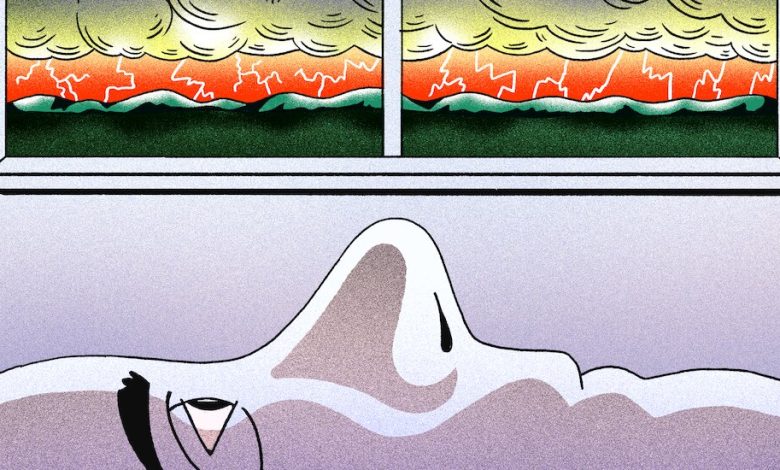That Numbness You’re Feeling? There’s a Word for It.

In mid-October, a few days after the attack on Israel, a friend sent me a text from a rabbi. She said she couldn’t look away from the horror on the news but felt completely numb. She was struggling to feel even the tiniest bit useful: “What can I even do?”
Many people are feeling similarly defeated, and many others are outraged by the political inaction that ensues. A Muslim colleague of mine said she was appalled to see so much indifference to the atrocities and innocent lives lost in Gaza and Israel. How could anyone just go on as if nothing had happened?
A common conclusion is that people just don’t care. But inaction isn’t always caused by apathy. It can also be the product of empathy. More specifically, it can be the result of what psychologists call empathic distress: hurting for others while feeling unable to help.
I felt it intensely this fall, as violence escalated abroad and anger echoed across the United States. Helpless as a teacher, unsure of how to protect my students from hostility and hate. Useless as a psychologist and writer, finding words too empty to offer any hope. Powerless as a parent, searching for ways to reassure my kids that the world is a safe place and most people are good. Soon I found myself avoiding the news altogether and changing the subject when war came up. Understanding how empathy can immobilize us like that is a critical step for helping others — and ourselves.
Empathic distress explains why many people have checked out in the wake of these tragedies. The small gestures they could make seem like an exercise in futility. Giving to charity feels like a drop in the ocean. Posting on social media is a hornet’s nest. Having concluded that nothing they do will make a difference, they start to become indifferent.
The symptoms of empathic distress were originally diagnosed in health care, with nurses and doctors who appeared to become insensitive to the pain of their patients. Early researchers labeled it “compassion fatigue” and described it as “the cost of caring.” The theory was that seeing so much suffering is a form of vicarious trauma that depletes us until we no longer have enough energy to care.
We are having trouble retrieving the article content.
Please enable JavaScript in your browser settings.
Thank you for your patience while we verify access. If you are in Reader mode please exit and log into your Times account, or subscribe for all of The Times.
Thank you for your patience while we verify access.
Already a subscriber? Log in.
Want all of The Times? Subscribe.
